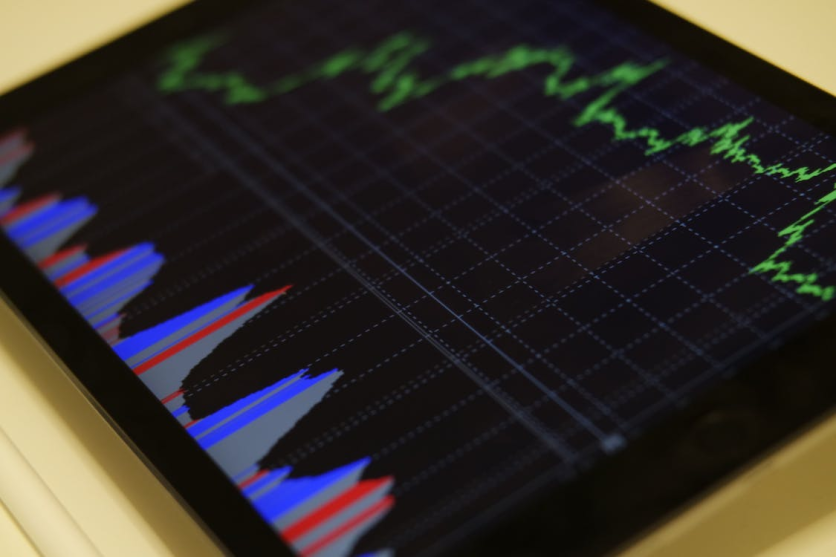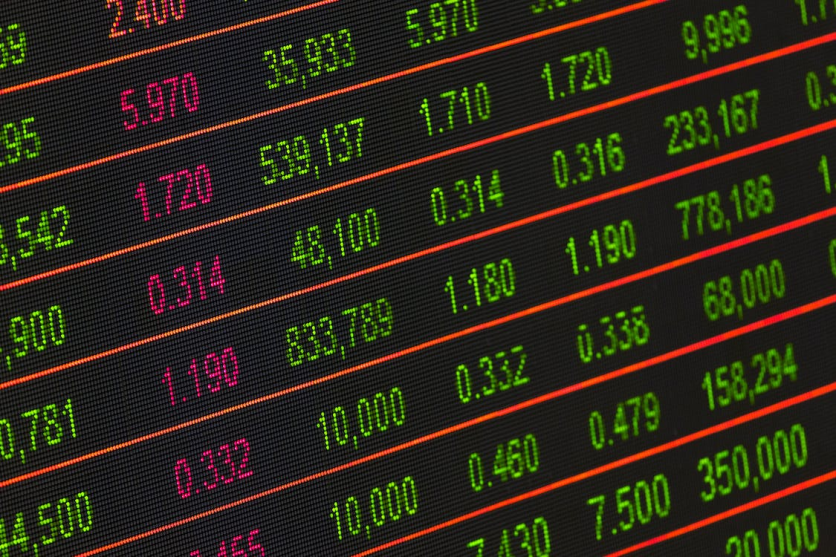
Forex trading can be an exciting and potentially lucrative endeavor, but it's important to approach it with the right knowledge and strategies. In this article, we will dive into the world of forex trading and provide essential tips for success. Whether you're a beginner or an experienced trader looking to enhance your skills, this guide will give you a solid foundation to build upon.
Understanding Forex Trading
Before we delve into the nitty-gritty details of forex trading, let's first understand what it is and how it works. Forex, short for foreign exchange, refers to the global marketplace where currencies are bought and sold. Unlike stocks or commodities trading, forex trading does not have a centralized exchange. Instead, trading takes place over the counter (OTC) through the interbank market.
When engaging in forex trading, individuals and institutions participate in the buying and selling of currencies. The goal is to profit from the fluctuations in exchange rates between different currencies. This market is highly liquid and dynamic, offering opportunities for traders to capitalize on currency movements.
What is Forex Trading?
Forex trading involves buying one currency and selling another simultaneously. Currency pairs are used to represent the value of one currency relative to another. For example, the EUR/USD currency pair represents the euro against the U.S. dollar. Traders speculate on whether the value of a currency will rise or fall against another, aiming to profit from these fluctuations.
Forex trading allows participants to take advantage of both rising and falling markets. When a trader believes that a currency will appreciate in value, they buy it, and when they anticipate a depreciation, they sell it. This ability to trade in both directions adds flexibility and potential profit opportunities to forex trading.
The Basics of Forex Market
The forex market operates 24 hours a day, five days a week, allowing traders to take advantage of global trading sessions. Major financial centers such as London, New York, Tokyo, and Sydney drive the market's liquidity and volatility. Traders can actively participate in the market at any time during these trading sessions, making forex trading a highly accessible market for individuals worldwide.
One of the key features of the forex market is its high liquidity. With daily trading volumes exceeding trillions of dollars, there is always an abundance of buyers and sellers in the market. This liquidity ensures that traders can enter and exit positions at desired prices, without significant slippage or difficulty in executing trades.
Furthermore, the forex market offers a wide range of currency pairs for trading. While major currency pairs like EUR/USD, GBP/USD, and USD/JPY are the most actively traded, there are also numerous minor and exotic currency pairs available. This variety allows traders to diversify their portfolios and explore different trading opportunities.
In addition to individual traders, various participants contribute to the forex market's liquidity. These include commercial banks, central banks, hedge funds, multinational corporations, and individual investors. The diverse range of participants ensures that the forex market remains vibrant and provides ample trading opportunities.
Moreover, the forex market is influenced by various factors that drive currency movements. Economic indicators, geopolitical events, monetary policies, and market sentiment all play a role in shaping exchange rates. Traders analyze these factors and use technical and fundamental analysis to make informed trading decisions.
As the Forex market evolves, innovations like Quantum Ai trading are beginning to make their mark. By utilizing the unparalleled processing capabilities of quantum computing combined with AI's predictive prowess, traders can now access more precise market forecasts than ever before. While traditional trading strategies remain vital, understanding and potentially integrating quantum AI techniques might just be the edge modern Forex traders need to thrive in this volatile marketplace.
Overall, forex trading offers individuals the opportunity to participate in a global market where currencies are constantly bought and sold. The decentralized nature of the market, high liquidity, and availability of trading opportunities make forex trading an appealing choice for traders seeking to profit from currency fluctuations.
Preparing for Forex Trading

Before jumping into forex trading, it's crucial to prepare yourself adequately. This section will outline two essential aspects of preparation: forex trading education and choosing the right trading platform.
For those preparing to dive into forex trading, choosing the right platform is crucial. xs.com offers traders access to deep institutional liquidity and advanced trading technology, combined with an efficient user experience and excellent customer support.
Importance of Forex Trading Education
Just like any skill or profession, forex trading requires education and continuous learning. Understanding the fundamental concepts, analyzing market trends, and employing effective trading strategies are vital for success. Invest time in learning from reputable sources, attending webinars, and practicing with demo accounts.
When it comes to forex trading education, there are various resources available. You can start by reading books written by experienced traders who share their insights and strategies. Online courses and tutorials can also provide comprehensive knowledge on different aspects of forex trading, including technical analysis, fundamental analysis, and risk management.
Attending webinars and seminars conducted by industry experts can be another valuable way to expand your knowledge. These events often cover a wide range of topics, from basic trading principles to advanced strategies. Additionally, they offer an opportunity to interact with other traders and gain insights from their experiences.
Practicing with demo accounts is an essential step in the learning process. Most reputable forex brokers offer demo accounts that allow you to trade with virtual money in a simulated trading environment. This enables you to test different strategies, understand market dynamics, and gain practical experience without risking real money.
Remember, forex trading education is an ongoing process. The markets are constantly evolving, and new trading techniques and strategies emerge. Stay updated with the latest trends and developments in the forex market to enhance your trading skills and adapt to changing market conditions.
Choosing the Right Forex Trading Platform
A reliable trading platform is a cornerstone of forex trading success. Look for a platform that offers a user-friendly interface, competitive spreads, fast execution speeds, and robust risk management tools.
When selecting a trading platform, consider your trading style and preferences. Some platforms are designed for beginners and provide a simplified trading experience, while others offer advanced features for experienced traders. Assess your needs and choose a platform that aligns with your trading goals.
Another crucial factor to consider is the platform's reliability and stability. A platform that experiences frequent downtime or technical issues can significantly impact your trading performance. Look for platforms that have a track record of stability and offer 24/7 customer support to address any potential issues promptly.
Regulation is another essential aspect to consider when choosing a trading platform. Ensure that the platform is regulated by reputable financial authorities to protect your investments and provide transparency. Regulated platforms adhere to strict rules and regulations, which helps safeguard your funds and ensures fair trading practices.
Furthermore, it's beneficial to explore the additional features and tools offered by the trading platform. Some platforms provide access to advanced charting tools, economic calendars, and news feeds, which can assist in making informed trading decisions. Take the time to familiarize yourself with these features and utilize them to enhance your trading strategies.
In conclusion, adequate preparation is crucial before venturing into forex trading. Invest in your education, continuously expand your knowledge and skills, and choose a reliable trading platform that aligns with your trading goals. Remember, forex trading is a journey of learning and adaptation, so stay committed to improving your trading abilities.
Essential Forex Trading Strategies
Now that you understand the basics and have prepared yourself adequately, let's explore two essential forex trading strategies: fundamental analysis and technical analysis.
Fundamental Analysis in Forex Trading
Fundamental analysis involves evaluating the economic, political, and social factors that influence currency value. Traders analyze indicators such as interest rates, GDP growth, employment data, and geopolitical events to gauge the overall health of a country's economy. By understanding fundamental factors, traders can anticipate currency movements and make informed trading decisions.
Technical Analysis in Forex Trading
Technical analysis relies on charts, patterns, and indicators to predict currency price movements. Traders use tools such as moving averages, support and resistance levels, and trend lines to identify potential entry and exit points. Technical analysis helps traders uncover historical price patterns and trends, allowing them to anticipate future price movements.
Risk Management in Forex Trading
Risk management is crucial in forex trading to protect your capital and minimize potential losses. Let's explore the importance of understanding forex trading risks and strategies for managing them.
Understanding Forex Trading Risks
Forex trading involves inherent risks, including market volatility, leverage, and geopolitical events. It's essential to have a clear understanding of these risks before entering the market. Educate yourself about risk management techniques, such as setting stop-loss and take-profit levels, diversifying your portfolio, and avoiding excessive leverage.
Strategies for Managing Forex Trading Risks
Effective risk management involves implementing strategies to minimize potential losses and protect your capital. Consider using proper position sizing, employing risk-reward ratios, and regularly reviewing and adjusting your trading plan. Additionally, stay updated with economic news and events that can impact the forex market to make informed trading decisions.
Tips for Successful Forex Trading
Lastly, let's explore essential tips for successful forex trading, focusing on consistency and patience.
Importance of Consistent Trading Plan
Developing and adhering to a consistent trading plan is vital for long-term success. Your trading plan should outline your goals, risk tolerance, trading strategies, and money management rules. Stick to your plan even during periods of market volatility or emotional decision-making, as consistency will help you stay focused and disciplined.
The Role of Patience in Forex Trading
Patience is a virtue in forex trading. Avoid the temptation to chase investment opportunities or make impulsive trading decisions. Successful traders understand that forex trading is a marathon, not a sprint. Be patient, wait for favorable setups, and avoid excessive trading. Remember, quality trades are preferable to quantity.
By understanding the fundamentals of forex trading, preparing adequately, employing effective strategies, managing risks, and maintaining patience and consistency, you can enhance your chances of success in the forex market. Embrace the learning process and continuously refine your skills to thrive in this dynamic and potentially rewarding field.
![Apple Watch Series 10 [GPS 42mm]](https://d.techtimes.com/en/full/453899/apple-watch-series-10-gps-42mm.jpg?w=184&h=103&f=9fb3c2ea2db928c663d1d2eadbcb3e52)



